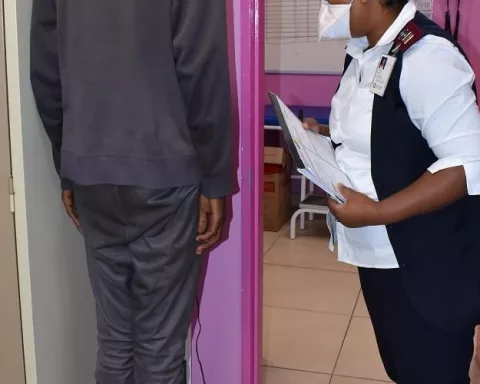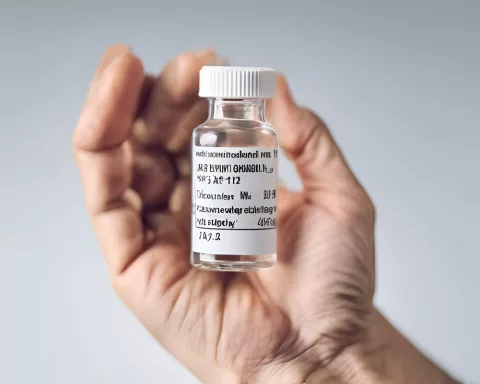The Western Cape FASD Network has announced the launch of a groundbreaking website dedicated to providing crucial information on Fetal Alcohol Spectrum Disorders (FASD). The initiative involves City Health and the Community, Arts & Culture Development Department within the city, the Western Cape Department of Health & Wellness, the Western Cape Education Department, and other NGOs and researchers specializing in FASD. The website is a novel approach to sharing essential FASD data and serves as a beacon of hope for a society where FASD is understood, prevented, and ultimately eradicated.
What is the Western Cape FASD Network and its Initiative?
The Western Cape FASD Network is launching a website dedicated to providing detailed information on Fetal Alcohol Spectrum Disorders (FASD). The initiative includes City Health and the Community, Arts & Culture Development Department within the city, the Western Cape Department of Health & Wellness, the Western Cape Education Department, and NGOs and researchers who specialize in FASD. The website is a novel way to propagate essential FASD data.
In the dynamic arena of health consciousness and societal outreach, an exhilarating proclamation was communicated on the significant date of September 9th that aligns with World Fetal Alcohol Spectrum Disorders (FASD) Day. The Western Cape FASD Network is primed to launch a pioneering initiative: a novel website devoted solely to the propagation of detailed and essential FASD data.
The Network Behind the Initiative
The Western Cape FASD Network symbolizes an amalgamation of varied sectors, all devoted to societal welfare. It includes City Health and the Community, Arts & Culture Development Department within the city. Engaged in the initiative are the Western Cape Department of Health & Wellness, the Western Cape Education Department, and a multitude of NGOs and researchers who specialize in early child development, special needs education, and FASD.
To many, the concept of FASD could appear enigmatic. To clarify, it happens when a pregnant woman drinks alcohol, which then filters into her bloodstream. This alcohol-infused blood reaches the unborn baby, causing chaos in the baby’s development, leading to an array of birth defects. The level of damage hinges on the stage of the pregnancy and the extent of alcohol consumption.
The Importance of Prevention
They often say that prevention is superior to cure, and this couldn’t be more accurate when it comes to FASD. The only guaranteed way to avert FASD is absolute abstention from alcohol during pregnancy. However, for many women grappling with alcohol addiction, this seemingly simple preventative measure can be an uphill battle. As a solution, Matrix® sites have been set up to extend support to those wrestling with substance abuse and alcohol addiction.
“No alcohol is always the safest route, especially if you’re planning to conceive or already pregnant. If you’re finding it challenging to liberate yourself from the shackles of addiction, don’t hesitate to seek assistance. Visit our Matrix® sites, and converse with our specialists. It’s never too late to implement a healthy change,” expressed Councillor Patricia Van Der Ross, the Mayoral Committee Member for Community Services & Health.
FASD Day Symbolism and Community Engagement
FASD Day is commemorated annually every 9th of September at exactly 9:09. The number nine is symbolic of the nine months of pregnancy when a woman can prevent FASD by remaining alcohol-free. The primary messages of the day are potent and lucid:
- FASD can be prevented if a mother abstains from alcohol during pregnancy.
- FASD is entirely preventable. A sober pregnancy yields a baby free from FASD.
- FASD is permanently damaging. The harm induced by alcohol is irreversible.
Recently, a community event was held by the City’s Eersteriver Clinic and the Eersteriver Matrix® site, with the goal of enhancing FASD awareness. The event, executed in collaboration with City libraries, showcased their 1000 stories programme. Displaying a strong sense of unity, the Community, Arts & Culture Development showcased FASD information using representative dolls. Additional stakeholders, comprising the Provincial Department of Social Development and The Saartjie Baartman Centre for Women and Children, disseminated resources and services for children and victims of gender-based violence.
Nomathemba Sejosengoe, a therapist at the Eerste River Matrix® site, and Sister Meagan Johnson, a professional nurse at the Eerste River Clinic, shed light on the harmful effects of alcohol on an unborn baby, stressing the importance of an alcohol-free pregnancy.
The Vision for the Future
The forthcoming FASD website is much more than an information gateway; it serves as a beacon of hope and education. It’s a tribute to the combined efforts of committed professionals aiming to combat FASD and contribute positively to society. As the Western Cape FASD Network pushes forward in its commendable work, let’s anticipate a society where FASD is comprehended, prevented, and ultimately, expunged.
What is FASD?
Fetal Alcohol Spectrum Disorders (FASD) is a condition where a pregnant woman drinks alcohol, which filters into her bloodstream and reaches the unborn baby, causing damage to the baby’s development and leading to an array of birth defects. The severity of damage depends on the stage of pregnancy and the amount of alcohol consumed.
How can FASD be prevented?
The only guaranteed way to prevent FASD is to abstain from alcohol completely during pregnancy. Women who struggle with alcohol addiction can seek support from Matrix® sites, where specialists can provide assistance.
Why is FASD Day celebrated on September 9th?
FASD Day is celebrated on September 9th every year at 9:09 to symbolize the nine months of pregnancy when a woman can prevent FASD by abstaining from alcohol. The primary messages of the day are that FASD is preventable and that a sober pregnancy yields a baby free from FASD.
What was the recent community event held by the City’s Eersteriver Clinic?
The recent community event held by the City’s Eersteriver Clinic and the Eersteriver Matrix® site aimed to enhance FASD awareness. The event showcased their 1000 stories programme and utilized representative dolls to display FASD information. Additional stakeholders, including the Provincial Department of Social Development and The Saartjie Baartman Centre for Women and Children, disseminated resources and services for children and victims of gender-based violence.
What is the vision for the future of the FASD website?
The forthcoming FASD website is more than an information gateway; it serves as a beacon of hope and education. It is a tribute to the combined efforts of committed professionals aiming to combat FASD and contribute positively to society. The Western Cape FASD Network hopes that the website will contribute to a society where FASD is comprehended, prevented, and ultimately eradicated.
Who is involved in the Western Cape FASD Network Initiative?
The Western Cape FASD Network Initiative involves City Health and the Community, Arts & Culture Development Department within the city, the Western Cape Department of Health & Wellness, the Western Cape Education Department, and NGOs and researchers who specialize in early child development, special needs education, and FASD.











